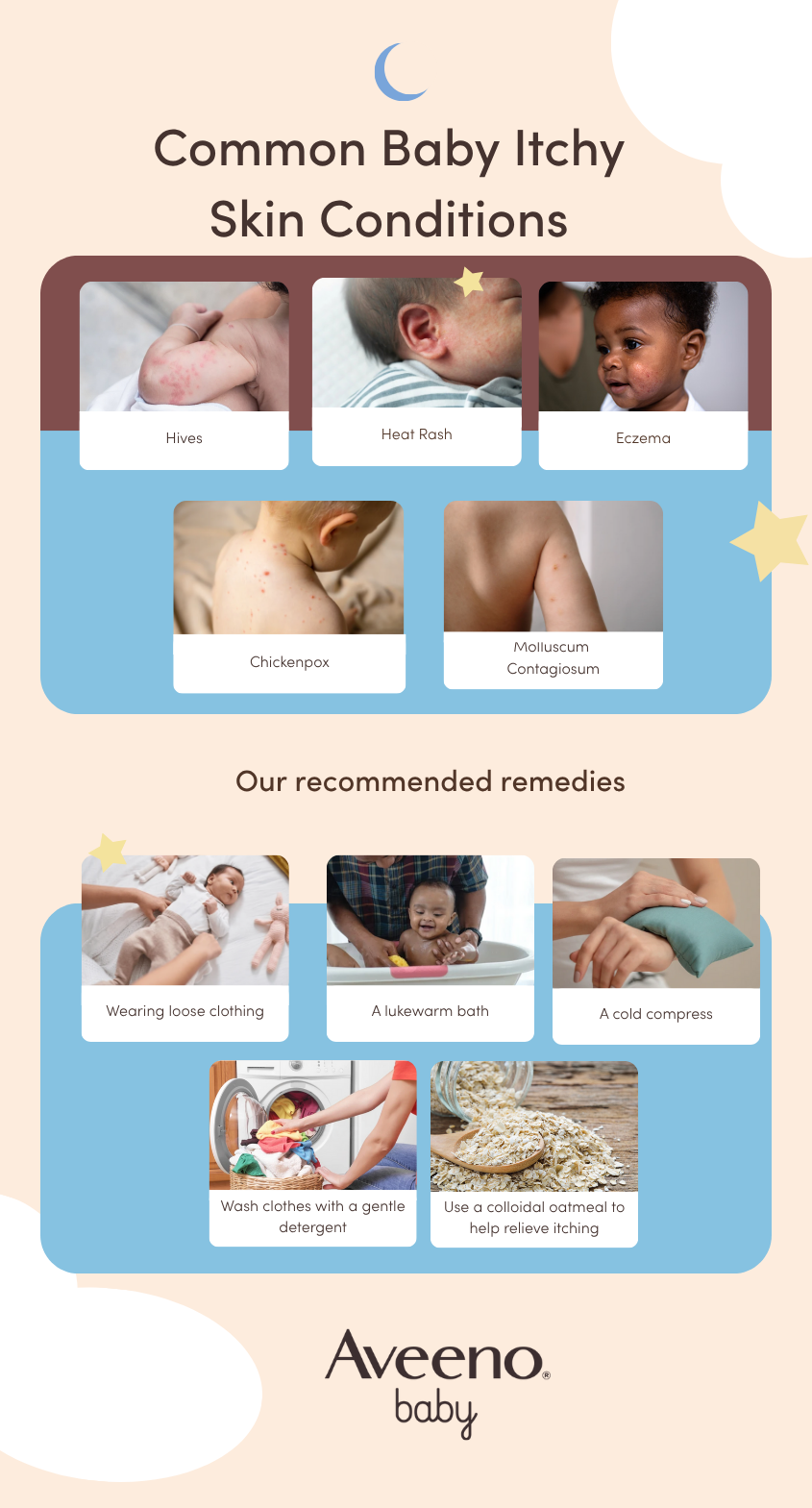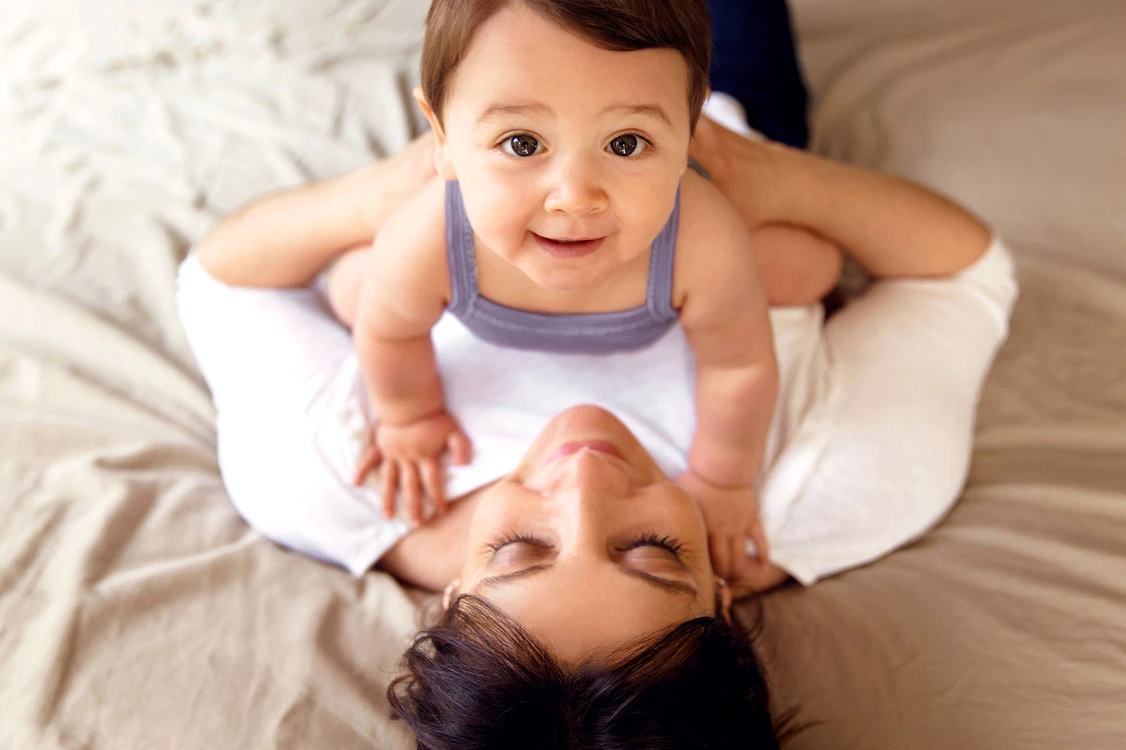Babies are prone to skin irritation in their first few months. While itchy skin is rarely a sign of anything serious, it can be associated with skin conditions such as eczema. It’s important to understand what’s causing itchy, irritable-prone baby skin and how to alleviate it.Here, we’ll cover the symptoms, common causes, and potential remedies for itchy, irritable-prone baby skin so you can know how to best help your little one.
Signs and symptoms of baby itchy skin
Itchy skin is an unpleasant sensation that can compel babies to scratch the affected area. Aside from scratching and general discomfort, additional signs of itchy and irritable skin can include:
Dry skin that is red and cracked
Weeping, crusting, and bleeding skin
Tiny blisters
Small, raised, red spots
A raised, scaly rash
My baby has itchy skin: What’s causing it?
The medical term for itching is pruritus. It can occur:
all over the body (generalised)
or in one particular area (localised)
.
Mild, short-term itching is common and is usually nothing to worry about. In most cases, it can be treated at home and will usually go away after a few weeks. However, sometimes, prevalent itching in children may be associated with a skin condition. These can include.
Urticaria (hives)
This common skin reaction often affects children. It’s triggered by high levels of histamine, which can be caused by a reaction to allergens, such as food or irritants, or physical factors like heat. This causes a raised, itchy rash to appear on a localised or generalised area of the body, but it’s usually short-lived.
Prickly heat (heat rash)
Also known as ‘miliaria’, this resembles a rash of small, raised spots that can result in an itchy or pricking sensation. It occurs in infants when they sweat more than usual. It’s usually nothing serious and doesn’t require any specific treatment.
Eczema
Eczema is a long-term condition that affects around one in five children in the UK. It typically appears behind the knees or on the elbows, neck, eyes, and ears. It isn’t a serious condition, but it can cause the skin to become itchy, red, and dry.
Chickenpox
This is a viral illness. While most children will get it at some point, it mostly affects children under the age of 10. Chickenpox appears as a rash of irritated spots, which turn into blisters, crust over to form scabs, and eventually fall off. It can appear on the face, chest, belly, arms, and legs.
Molluscum contagiosum
A viral skin infection, molluscum contagiosum sees groups of small, firm raised spots appear on the skin. It mostly affects younger children between the ages of one to five. Children tend to catch it after coming into close contact with an infected child.Baby itchy skin usually isn’t sign of anything serious. That said, if your child seems seriously unwell, then you should. trust your own judgment.If you’re worried about your child’s skin and are unsure what to do, ask for an urgent GP appointment or call 111. Additionally, itchy, irritable-prone baby skin and rashes that are accompanied by other symptoms, such as a cough or fever, should be checked out by a doctor as soon as possible.

Baby itchy skin remedies
The type of remedy needed to treat and alleviate itchy, irritable-prone baby skin will depend on the cause. For example, if your baby has eczema, you may need to apply an emollient directly to their skin. Emollients work by helping to sooth, heal, and retain moisture in the skin.They also act as a barrier to prevent any irritations coming into contact with the skin. AVEENO ® Baby Dermexa Emollient Cream is specially formulated for babies with dry, itchy skin and has been clinically proven to moisturise and soothe.Additionally, there are several other things you can do to help alleviate itching and prevent damage caused by scratching. These include:
Identify and avoid any triggers
Use a gentle detergent to wash their clothes and bedding
Look out for specially formulated baby products that are free from irritants, such as dyes, fragrance, and parabens
Apply a soothing emollient or moisturising lotion to their skin regularly
Create a cool, dry environment for them
Dress your baby in loose-fit clothing and layers that can easily be removed when its hot
Cover the affected area to discourage scratching
Apply a cold compress to the irritated area
Use colloidal oatmeal to help relieve itching
Soak them in a lukewarm bath, but avoid letting them soak for too long (around 3 to 5 minutes is enough)
Calm and distract them by playing games
Keep their nails short to prevent them from digging into their skin

